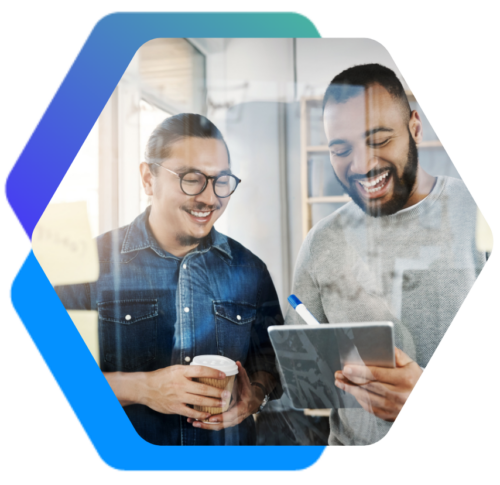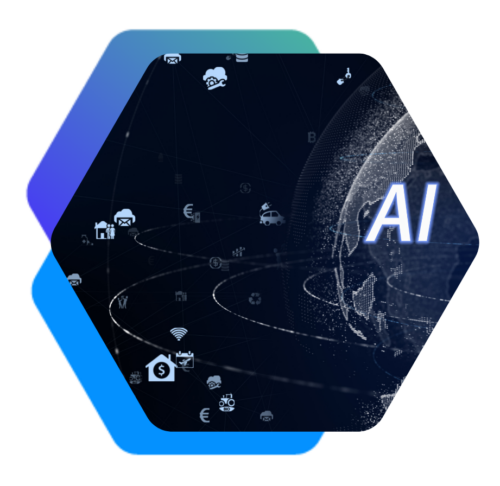How AI is Transforming HR: From Recruitment to Workforce Strategy
Artificial intelligence is reshaping the workplace faster than ever.
For HR leaders, the challenge is not just understanding AI but integrating it into processes like recruitment, learning and development, and performance management.
A recent article by McKinsey & Company has highlighted the way AI is redefining how HR functions operate by enabling data-driven decision-making and automating complex workflows. AI agents are becoming central to this transformation, offering automation and intelligence that extend far beyond traditional HR tools.
An AI agent is essentially a technology built with automation at its core. It can access large databases, leverage natural language processing, and even learn from interactions. In HR, this means an agent can help manage workflows, track candidate progress, and assist employees in real time. Think of it as a digital assistant that supports HR teams systematically, rather than just completing isolated tasks.
 Recruitment is often the first area where AI is applied, and for good reason. It is complex, highly visible, and directly impacts organisational competitiveness. The challenge is that recruitment is not straightforward. Bias can be embedded in data, user interfaces must be transparent, and sample sizes need careful management to avoid skewed outcomes. By using AI thoughtfully, HR can reduce these risks while making smarter, faster decisions.
Recruitment is often the first area where AI is applied, and for good reason. It is complex, highly visible, and directly impacts organisational competitiveness. The challenge is that recruitment is not straightforward. Bias can be embedded in data, user interfaces must be transparent, and sample sizes need careful management to avoid skewed outcomes. By using AI thoughtfully, HR can reduce these risks while making smarter, faster decisions.
Recruitment also provides insight into an organisation’s long-term strategy. Understanding what roles to hire for, which skills are needed internally, and how the marketplace is evolving allows HR teams to align talent acquisition with broader business objectives. AI enables HR to experiment, forecast, and plan for future workforce needs while ensuring that every recruitment decision supports strategic goals.
The Rise of Process-Oriented AI
AI agents are most powerful when applied to processes rather than individual tasks. In areas such as learning and development, performance management, and employee engagement, AI can orchestrate complex workflows with an outcome-driven approach. By mapping data points such as employee skills, interests, and career goals, AI helps HR teams personalise experiences and deliver targeted development opportunities.
This process-focused approach transforms HR from a primarily administrative function into a strategic partner. Leaders can use AI to forecast talent gaps, align workforce planning with organisational objectives, and provide personalised support to employees. The result is a workforce that is better prepared for change and more resilient in a competitive environment.
Smaller Teams, Greater Impact
With AI handling repetitive administrative tasks, HR teams can operate more efficiently and focus on strategic priorities. Screening resumes, coordinating learning programmes, and managing administrative workflows no longer consume the majority of HR time. This shift allows teams to concentrate on high-value activities, such as coaching, strategic workforce planning, and talent development.
AI also encourages HR to break down silos. Recruiting, talent development, and employee engagement become interconnected functions. By aligning these areas, HR can ensure the organisation has the right skills in the right roles, and that employees are continuously upskilled to meet evolving business demands.
Futureproofing HR Functions
The integration of AI into HR is not about replacing humans but augmenting them. Technology increases productivity, allows for real-time insights, and frees HR professionals to focus on strategic initiatives. However, HR functions must adapt quickly to remain relevant. Leaders need to understand the capabilities of AI, identify where it can enhance processes, and develop the skills to use it effectively.
 The future of HR will rely on a symbiotic relationship between technology and human expertise. AI can streamline processes and provide actionable insights, but humans remain critical in interpreting data, making strategic decisions, and fostering employee engagement. Organisations that embrace this approach will be better positioned to navigate change and maintain a competitive edge.
The future of HR will rely on a symbiotic relationship between technology and human expertise. AI can streamline processes and provide actionable insights, but humans remain critical in interpreting data, making strategic decisions, and fostering employee engagement. Organisations that embrace this approach will be better positioned to navigate change and maintain a competitive edge.
Looking to the Future
AI is transforming HR from administrative support to a strategic powerhouse. Recruitment, learning, performance management, and workforce planning are all evolving as AI agents become more capable and integrated. HR leaders who understand the potential of AI, focus on process-driven applications, and invest in reskilling their teams will be able to harness technology to drive meaningful organisational impact.
By embracing AI, HR can not only improve efficiency but also anticipate future workforce needs, deliver personalised employee experiences, and align talent strategy with business goals. The result is a smarter, more agile, and competitive organisation.
--
Find out more about how to transform your business with AI with Impact Transformation. Get in touch with us to learn more.
Share this
